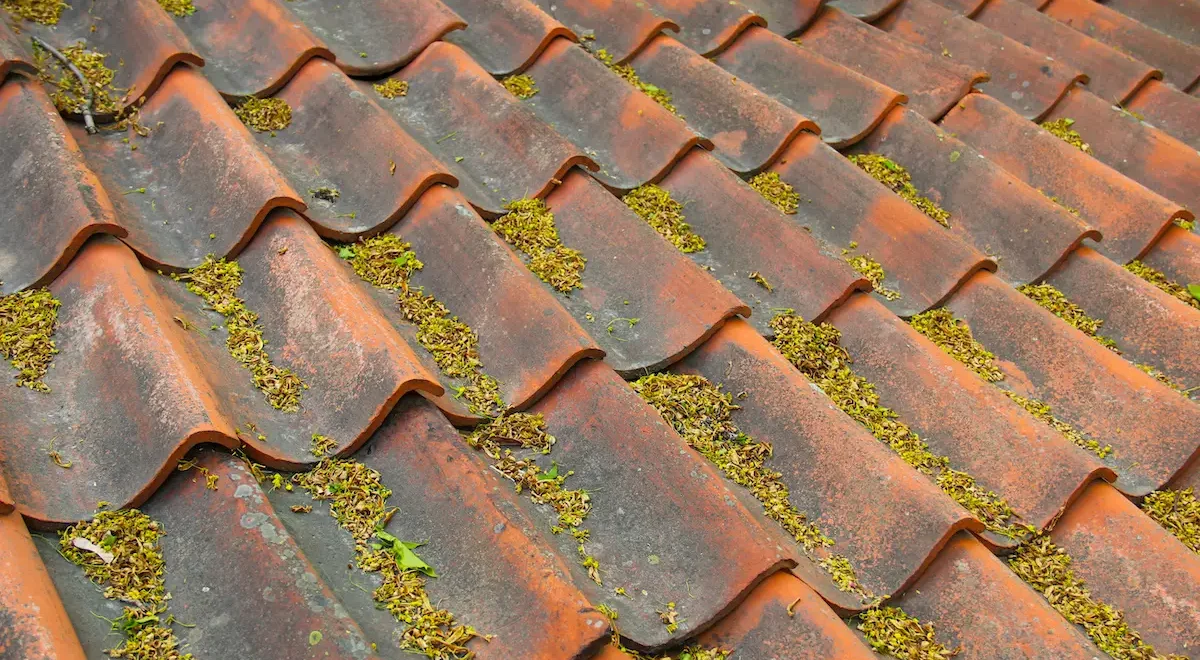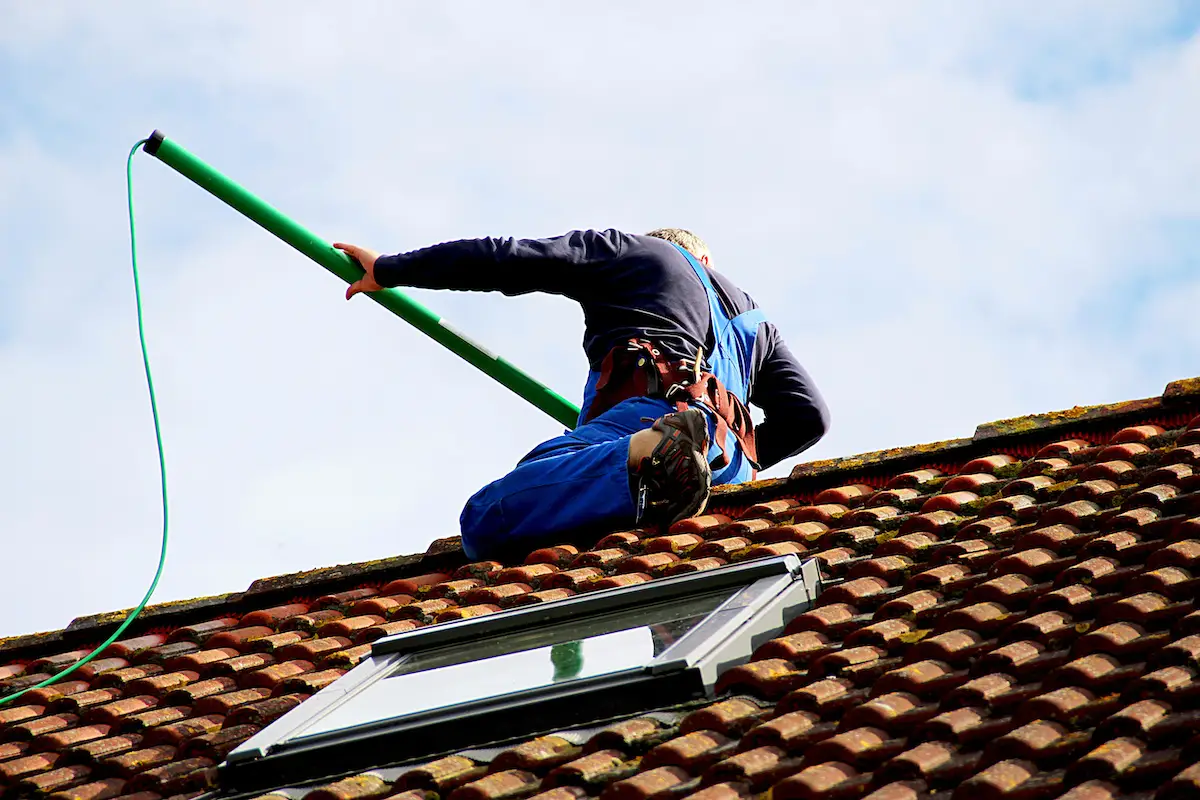Quick Contact
For the fastest response, please call/text us Mon. thru Fri. 9am - 4pm at (727) 771-8747.
211 Hedden Court
Palm Harbor, FL 34683
Monday-Friday: 9am – 4pm

Quick Contact
For the fastest response, please call/text us Mon. thru Fri. 9am - 4pm at (727) 771-8747.
Spring in Florida is a season of vibrant blooms, longer days, and warmer temperatures—but it’s also a peak time for pollen and other airborne allergens. While most homeowners are focused on keeping windows shut and HVAC filters clean, many overlook one of the biggest surfaces collecting pollen: the roof.
At Done Rite Roofing, we know your roof does more than protect your home from rain and sun. It also plays a role in how clean and allergen-free your indoor space can be. Pollen buildup on your roof can contribute to allergy symptoms, clog your gutters, and even impact the longevity of your roofing materials. That’s why seasonal roof maintenance during spring is essential.
In this guide, we’ll walk you through how pollen and allergens affect your roof, the problems they can cause, and how to protect your roof (and your family) throughout the season.
Spring brings a spike in airborne particles like tree, grass, and weed pollen. These tiny grains are designed to travel through the air—meaning they land just about everywhere, including your roof.
Because your roof has a large, sloped surface area, it acts like a landing zone for pollen, dust, mold spores, and other allergens. Depending on the type of roofing material and the pitch of your roof, pollen can settle into cracks, cling to shingles, and accumulate in areas where moisture tends to linger.
Key sources of roof allergens in spring include:
Once pollen collects on your roof, rain can wash it into gutters, downspouts, or even into your attic if there are leaks or poor ventilation.

You might think a bit of pollen on your roof isn’t a big deal—but over time, this buildup can cause problems for both your roof and your indoor environment.
Pollen, combined with leaves and debris, can clog your gutters. Blocked gutters lead to water overflow, which then may damage fascia boards, siding, or even your foundation.
When pollen settles on moist surfaces, it can encourage mold and mildew—especially in shaded or flat areas of your roof.
If allergens make their way inside through attic vents, roof leaks, or poorly sealed openings, then they can reduce indoor air quality and aggravate asthma or allergies.
Organic buildup such as pollen, mold, and algae can slowly degrade roofing materials. Shingles may weaken or discolor, and moisture retention can accelerate wear.
A dirty roof can absorb more heat, making it harder for your home to stay cool during the warmer months. This increases your energy bill and places more strain on your HVAC system.
Keeping your roof clear of pollen doesn’t require daily upkeep, but a proactive plan during spring can prevent issues down the road.
Start the season with a professional roof inspection. At Done Rite Roofing, we check for damage, organic buildup, clogged gutters, and ventilation issues that may worsen during pollen season.
If your roof is visibly yellow or green with pollen, it’s time to clean it. Use a soft-bristle brush or a low-pressure washer to remove buildup gently. Avoid high-pressure washing because this can damage shingles.
Important Note: Always hire a professional if you’re unsure how to clean your roof safely. Slippery pollen and mold can make rooftop work dangerous.
Clean your gutters thoroughly at the beginning of spring. Consider installing gutter guards because they reduce the amount of debris entering your gutter system throughout the season.
Overhanging branches shed pollen directly onto your roof. Trimming trees back not only reduces pollen exposure but also prevents mold-causing shade and falling branches.
Proper attic and roof ventilation helps prevent moisture buildup, reducing the chance for mold and mildew to grow when pollen settles.
Some roofs may benefit from an anti-algae or anti-fungal treatment, especially in areas prone to mold growth. These can help keep pollen and other organic matter from sticking and decaying on your shingles.
Taking steps to reduce pollen on your roof doesn’t just help your roof last longer—it helps create a healthier living environment for your entire household.
When your roof stays clean and dry, your home stays cleaner and healthier from top to bottom.

At Done Rite Roofing, we’re more than just a roofing company—we’re your partner in home protection. Our team has decades of experience serving Florida homeowners and understands the unique challenges that spring pollen and humidity bring.
We provide:
We believe that regular maintenance is the best way to extend the life of your roof, avoid expensive repairs, and maintain a healthy home. Our expert team knows what to look for and how to treat your roof without causing damage or voiding your warranty.
Spring is a time of beauty and growth—but it also brings allergens that can wreak havoc on your roof and your health. By understanding the risks pollen on roof and mold pose and taking a proactive approach, you can enjoy the season without worrying about long-term damage.
Let Done Rite Roofing help you protect your home from the top down. Whether you need a full roof inspection, a gentle spring cleaning, or advice on seasonal maintenance, we’re here to ensure your roof is ready for whatever spring sends your way.
Contact us today to schedule your spring roof inspection and keep your home clean, safe, and allergen-free all season long.
Your Trusted Roofing Contractor for Roof Repairs & Replacement
Serving Pinellas, Pasco, & Hillsborough Counties Over 25 Years!